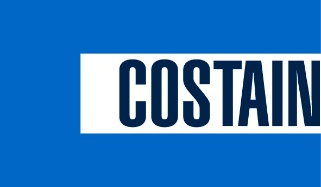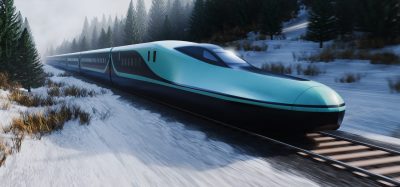Protecting our title as main passenger transport operator in Croatia
Posted: 15 February 2011 | | No comments yet
HŽ Putnički prijevoz d.o.o. is one of four associated companies in HŽ Holding and its main activity is passenger transport. The mission of HŽ Putnički prijevoz d.o.o. is providing high-quality, reliable, and economically and environmentally acceptable passenger transport services in urban-suburban, local-regional, international and domestic long-distance transport with modern rolling stock. Its vision is to become a major operator in Croatia focused on mass railway passenger transport according to market principles, while at the same time taking into account and protecting the owner’s interests to the satisfaction of transport users and employees.
HŽ Putnički prijevoz d.o.o. is one of four associated companies in HŽ Holding and its main activity is passenger transport. The mission of HŽ Putnički prijevoz d.o.o. is providing high-quality, reliable, and economically and environmentally acceptable passenger transport services in urban-suburban, local-regional, international and domestic long-distance transport with modern rolling stock. Its vision is to become a major operator in Croatia focused on mass railway passenger transport according to market principles, while at the same time taking into account and protecting the owner’s interests to the satisfaction of transport users and employees.
HŽ Putnički prijevoz d.o.o. is one of four associated companies in HŽ Holding and its main activity is passenger transport. The mission of HŽ Putnički prijevoz d.o.o. is providing high-quality, reliable, and economically and environmentally acceptable passenger transport services in urban-suburban, local-regional, international and domestic long-distance transport with modern rolling stock. Its vision is to become a major operator in Croatia focused on mass railway passenger transport according to market principles, while at the same time taking into account and protecting the owner’s interests to the satisfaction of transport users and employees.
At the time of writing this article and on the basis of past indicators, we can say that the business results of HŽ Putnički prijevoz d.o.o. in 2010 will be equivalent to the levels recorded in 2009. We expect to transport 72 million passengers and have revenue of approximately HRK 385 million. Although the State Budget incentives for passenger transport were reduced by 8.1% in 2010 (to the amount of HRK 340 million), HŽ Putnički prijevoz d.o.o. in 2011 plans to maintain the results of transported passengers and the revenues achieved in 2010, because fares will not rise in 2011. Passenger transport revenue accounts for 43% of total revenues. In the period from 2001-2010, the share of road transport has decreased, while the share of rail transport has increased reaching 54% in the total inland passenger transport in 2010.
Rolling stock
Croatian Railways dispose of a relatively old rolling stock, so the average age of electric locomotives is 33 years, diesel locomotives 36 years, EMUs 32 years, DMUs 23 years and passenger coaches 29 years. On 31 December 2009, the active rolling stock of HŽ Putnički prijevoz d.o.o. included 285 coaches, out of which 97 are air-conditioned.
On the basis of a contract with HŽ-Vuča vlakova d.o.o. (HŽ-Train Traction) they provided locomotive and multiple-unit set services. For the implementation of the 2008/2009 timetable 53 DMUs and 17 EMUs, i.e. 70 MUs in total, were required and they were available in the active rolling stock with 9,574 seats.
The last new coaches were bought in 1991 (13 coaches for speeds of up to 200km/h for the new ‘Mimara’ train on the route Zagreb–Munich), and the last new multiple units were bought in 2004 – eight new tilting trains (for the route Zagreb–Split). In the meantime, since 2002, 80 1st and 2nd Class coaches for regional and international transport have been modernised, including 10 sleeping cars and seven couchette coaches for speeds of up to 160km/h. All the modernised coaches have airconditioning and a new interior, so they provide a high level of comfort for passengers. In the same period, 15 EMUs and 14 DMUs for suburban and regional transport have been refurbished, which has increased service quality in passenger transport. The modernisation process also continued this year as well, so the project of modernisation of 24 2nd Class coaches designed for speeds of 120km/h began in 2010. These coaches will have airconditioning, vacuum toilets will be installed, entrance doors replaced and the interior freshened up.
In November 2009, the contracts for the development and production of the prototype of an EMU for urban-suburban transport (EMV GPP) were concluded, as well as for a DMU for regional transport (DMV RP). The production of the prototypes of multiple units is planned for the first half of 2011.
The EMU prototype for regional transport, which is jointly produced for HŽ Putnički prijevoz d.o.o. by Končar and Gredelj, was presented at Zagreb Main Station on 13 September 2010. Ten months after the contract had been signed on the basis of HŽ Putnički prijevoz d.o.o. technical requirements, a prototype was developed and produced, meeting all the current legal regulations, EU guidelines, TSIs, and other relevant regulations. All the main assembly parts and the operating system are the result of domestic manufacturers’ development work, and the quality of the applied technical solutions ranks the train with sophisticated EMUs nowadays manufactured by renowned global manufacturers of railway vehicles.
The presentation ceremony of the EMU prototype for regional transport was held at the InnoTrans 2010 fair in Berlin on 22 September 2010.
There are plans for the procurement of 92 new low-floor multiple units by the year 2018. They include 25 Diesel Electric Multiple Units (DEMUs) and 67 EMUs for 25 kV 50 Hz power supply system (of that number, 18 EMUs are for urban-suburban transport and 49 EMUs are for regional transport).
International transport
HŽ Putnički prijevoz d.o.o. bases its development in domestic long-distance transport on the transport offer that includes express and intercity trains which connect the biggest cities in Croatia. In addition to the timetable adapted to transport needs, HŽ Putnički prijevoz d.o.o. is trying to offer the transport users additional ancillary services. They primarily include the development of business cooperation with hoteliers and catering companies, which enable passengers to use ancillary services at special rates, thus creating added value to the basic transport service. We are also currently working on intermodal cooperation with a bus carrier, so that we can transport passengers to their final destination by using two means of transport with a harmonised timetable and one ticket.
In international transport, HŽ Putnički prijevoz d.o.o. is trying to become the leader in the railway transport market of South East Europe with the quality of its rolling stock and harmonised timetables. Air-conditioned coaches, modern sleeping cars and couchette coaches, along with a wide range of tariff offers are a strategic baseline for competing with road and low-fare air carriers. In view of the tourist orientation of Croatia, special attention is paid to connections between neighbouring countries and destinations on the Adriatic, mainly for tourists that traditionally visit our seaside resorts.
In this context, the Republic of Slovenia, namely its capital Ljubljana, is connected with Rijeka with two pairs of direct express trains during the whole year and with Pula during the summer season. The majority of trains arriving to Zagreb from Slovenia also have good connections to seaside and inland destinations.
HŽ Putnički prijevoz d.o.o. has had a successful project with Hungarian Railways for several years. It is a seasonal train called ‘Adria’ which directly connects Budapest and Split twice a week in summer months. In addition to this, Hungary and Croatia have three pairs of express IC trains a day during the whole year, which is certainly a good transport offer due to affordable fares.
The transport offer with our eastern neighbour Serbia is based on four pairs of direct trains a day between Zagreb and Belgrade, and in summer months there is an agency train ‘Jadran Express’ on the route Belgrade–Split. This train has operated for three seasons already and train capacities were increased every year including adding of car-carrier wagon.
Austria is well connected to Croatian destinations with direct trains arriving from Austria to Zagreb, where there are good connections and transfer options to get to all bigger cities in Croatia.
Our country is also well connected to destinations in Germany. The ‘Mimara’ train is one of the important trains connecting Zagreb and Siegen (federal state of North Rhine- Westphalia), and the Euro Night train ‘Lisinski’ (with its wide range of tariffs and coach offers) connects Zagreb and Munich.
Our modern sleeping cars and couchette coaches have been included in the direct train to Zurich for several years and they are very well accepted by the market and have good occupancy rates.
Our international transport development plans will be based on the concept of development of a wide range of acceptable tariff offers, but also on the development of seasonal and agency trains network with the countries from central and eastern Europe (Czech Republic, Poland, Slovakia and Ukraine), including sleeping cars and car-carrier wagons. We think that in this way we could provide our traditional tourists a safe, reliable and fast transport to our most visited seaside resorts, Split being the point of distribution. It should also be pointed out that we are developing the concept of transferring passengers from the train to their hotel, which may be quite attractive to the older population using the railway to get to their holiday destinations.
Local transport
According to the 2010/2011 timetable, 565 trains (passenger and express) operate in local transport, which account for 70% of the total number of passenger trains. Local trains are adapted to the everyday needs of pupils, students and workers – the most important commuters – that have monthly season tickets, season tickets for several months or annual season tickets, and they account for 52.9% of the dispatched passengers in domestic transport.
The purpose of the mentioned trains is to provide connections within a region for daily commuters, so more emphasis is put on the timetable and regularity of the trains, than on comfort. HŽ Putnički prijevoz d.o.o. have been concluding contracts on subsidising commuter railway transport with some counties, cities and municipalities for several years already.
Currently, 130 contracts have been concluded; of that number 16 are for the calendar year and 114 of them are for the school year. The aim is to establish business cooperation with the bodies of regional and local self-government regarding subsidising a part of monthly season ticket fares (for pupils, students and workers). This model of subsidised fares provides financial relief to passengers and makes railway transport more attractive. For regional and local self-government this means gaining the trust of the local population who will certainly appreciate community’s efforts on reducing fare costs. For the railway this means increased number of transported passengers and thus increased revenues.
Special trains
For 15 years, Croatian Railways have been an indispensable partner in the development of Croatian tourism, one of the most important branches of the economy. In addition to the increased number of trains in the summer season toward the seaside destinations, we are also working on the improvement of quality of services provided in inland tourism. Hundreds of tourist trains take excursionists to various events organised by local tourist boards, counties and towns. So the excursion trains that have already become a recognisable brand on the excursions market will operate in 2011 again. These trains are aimed at tourists on daily excursions to nature, swimming pools, spa resorts, grape picking and similar events.
HŽ Putnički prijevoz d.o.o. will once again include in its summer 2011 offer the ‘Disco Coach’, a project initiated six years ago for providing a new service in night trains on the route Zagreb Main Station–Split–Zagreb Main Station. During the 8-hour night journey, various events can be organised in a refurbished buffet coach with special audio equipment and lighting, a bar and seating places. The ‘Disco Coach’ has become quite popular in Europe, so young tourists choose night trains between Zagreb and Split precisely for that reason.
Suburban transport
A considerable amount of HŽ Putnički prijevoz d.o.o. revenues comes from the suburban transport mainly in the capital Zagreb, but suburban transport is also partly organised in the cities of Split, Rijeka, Osijek and Varaždin. Suburban railway transport was first organised in 1992 in Zagreb, the Croatian capital, with approximately 4,000 transported passengers a day. In 2010, approximately 100,000 passengers have been transported per day. Since 1992, the number of transported passengers has continuously increased, which resulted in a continuous increase of the number of trains and train capacities. In the last 20 years, big turning points were the application of the common tariff union between HŽ and Zagreb Electric Tram (ZET), i.e. the introduction of the common ticket, and the construction of new and the reconstruction of the existing stops in the zone of urban-suburban transport.
Tendencies in Europe, but also in the example of the City of Zagreb and the surrounding area, are the introduction of a complete tariff, fare and also organisational integration of all the transport modes with the zone tariff model.
One of strategic priorities of the urban transport policy should be the implementation of intermodal passenger transport system (IPS) in the urban passenger transport. This implies an efficient integration of rail traffic with other subsystems of public urban transport, namely bus transport, trams, and in some cases, even individual transport (personal cars). This would make the public passenger transport offer more attractive and its operational costs would be rationalised, problems of high intensity of individual transport in the centre of the town solved, and the life quality in the cities and their agglomerations would increase. The first example of an integrated passenger transport inspired by a similar model applied in Styria, an Austrian province, is to be introduced soon in the area of three counties in north-west Croatia. The drawing up of studies and models assessments has already begun.
There are a lot of advantages for the passengers from the introduction of the IPS and they can be summarised as follows: systematic traffic connections of the service area, optimal line connections and timetables of some carriers, unified transport from the passengers’ point-of-view, cost-effective fares; single tariff system – orientation of passengers in the ticketing system and the conditions of their use are simplified regardless of the number of carriers; single information system on all the aspects of the public transport; single ticket sales system enables easier purchasing of tickets for the passengers. The advantages for the public sector are maintaining the public transport’s attractiveness competing with individual car transport with corresponding economic and non-economic consequences; long-term increase in cost-effectiveness of public transport which arises from conglomeration and common longterm investment policy, and the fact that extensive and encompassing traffic area provides a systematic transport solution with a long-term perspective.
About the Author
Marijan Klarić graduated in 1977 from the Interfaculty Traffic Engineering Studies at the Faculty of Civil Engineering in Zagreb. In 1996, he became the President of the HŽ Management Board. Since 1999, he has held positions of Adviser and Assistant to the Transport Minister, representative of DB AG and Deputy President of the HŽ Management Board. At the moment, Mr. Klarić is the President of HŽ Passenger Transport Management Board and Member of HŽ Holding Management Board.






